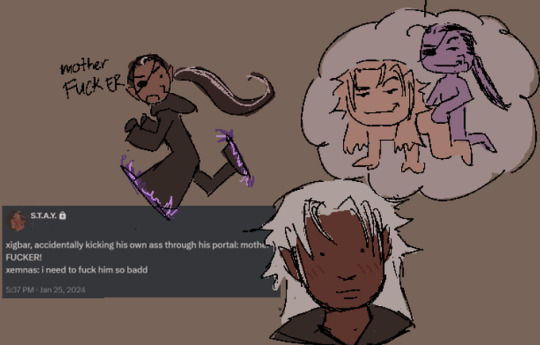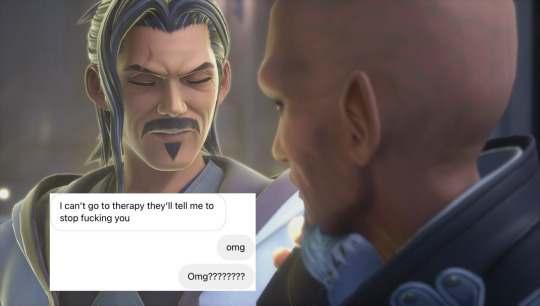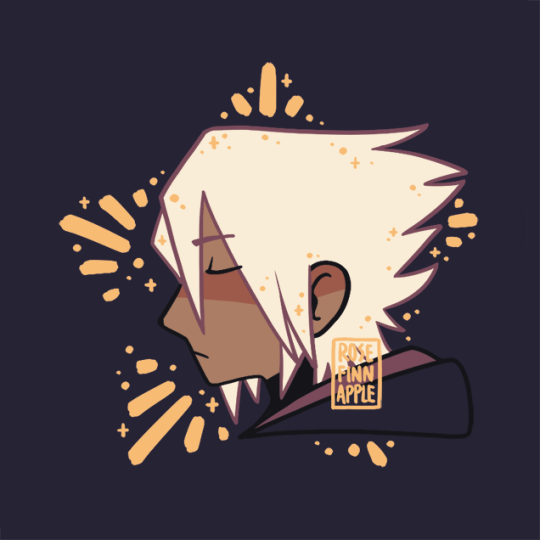Text
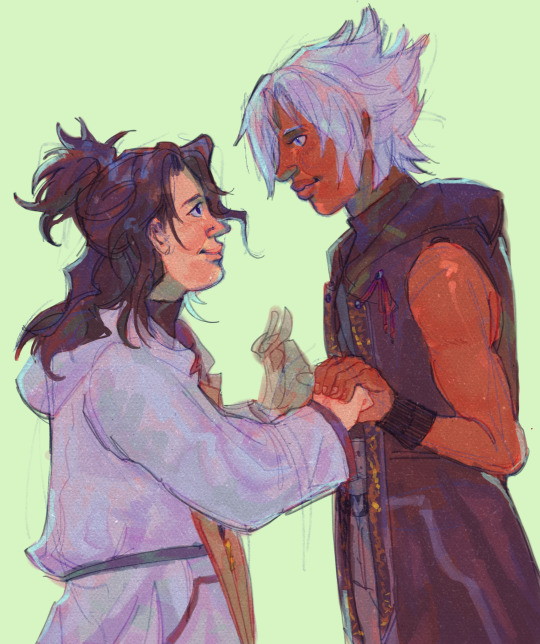

teehee
439 notes
·
View notes
Text
Solidarity
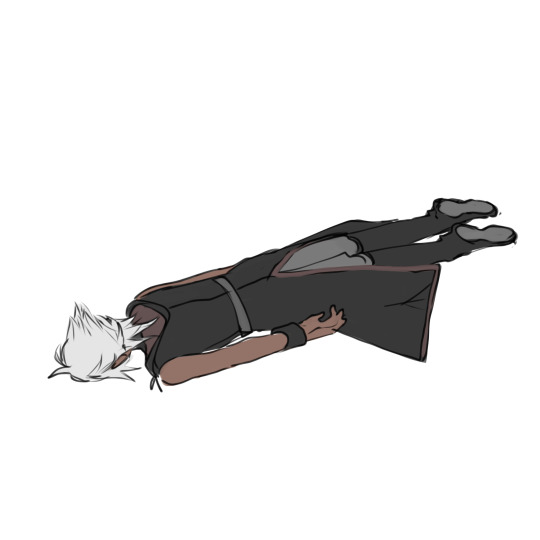
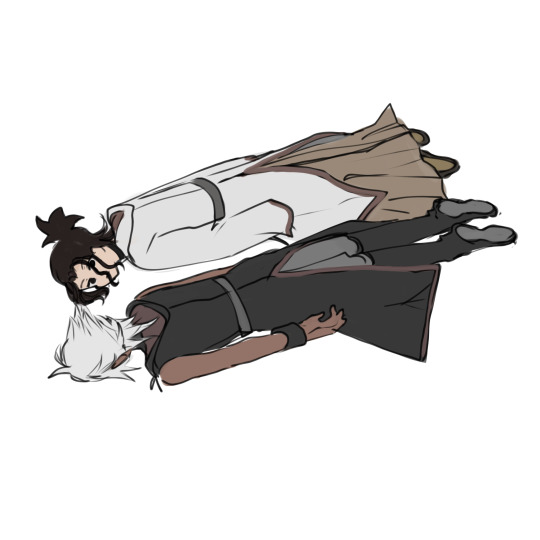
716 notes
·
View notes
Text
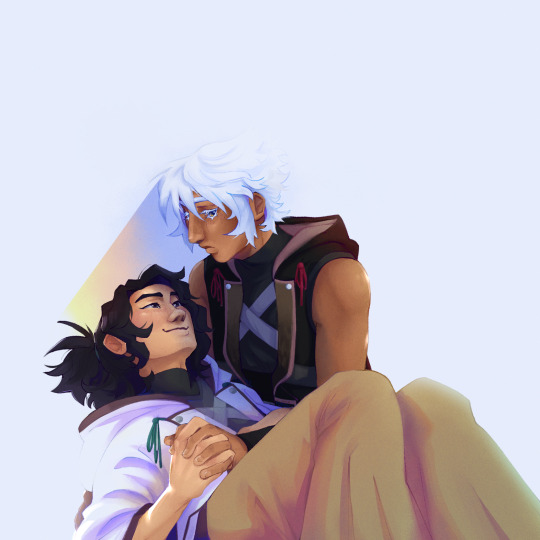
even good things have to end
393 notes
·
View notes
Text
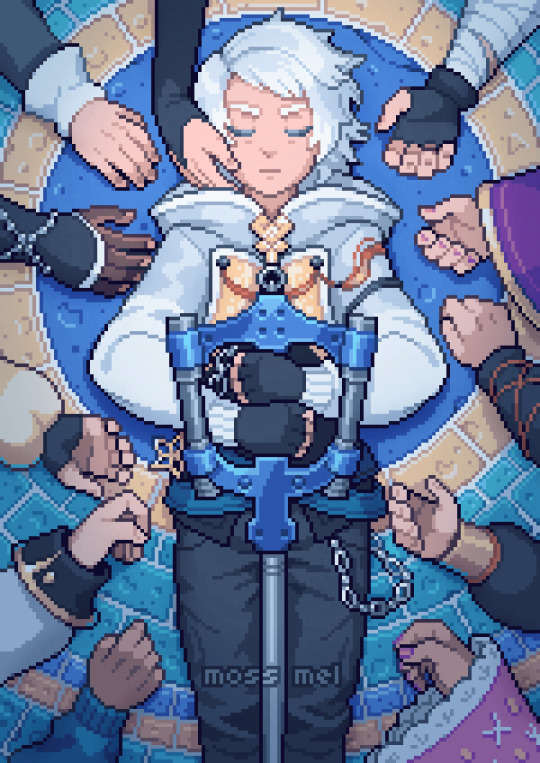
My piece for the @shatteredestiny-zine !
I wanted my piece to focus on the many characters' tragic fates...
1K notes
·
View notes
Text

save the best for last
890 notes
·
View notes
Text
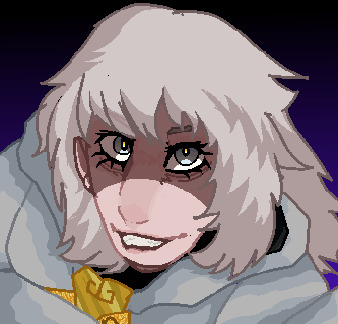
there's them. and then there's us.
58 notes
·
View notes
Text

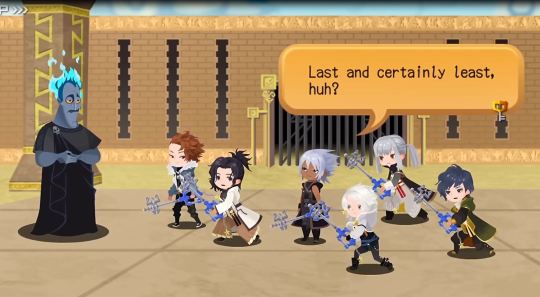
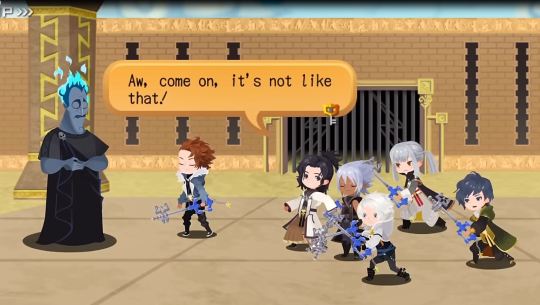
KHDR rewatch rant below
Rewatching dark Road for fanfic note taking and this scene stuck out to me this time.
It's obvious Bragi and Eraqus are friends and since they both grew up in the same city they were possibly friends long before Xehanort showed up (how many of those years Bragi was actually Luxu is up to you). Not long before this scene Eraqus refused to listen to Xehanort about Vor and leaves him behind to search for her with Bragi which we know Xehanort was upset about.
Maybe it's because of that or maybe it's been going on for a while now and the events just deepened the cracks, but Xehanort's comment of "last and certainly least, huh?" seems like he's not only jealous of how Eraqus and Bragi keep sticking together, but really upset that he'll always be secondary in Eraqus's thoughts.
Xehanort is friendly with his classmates, but is only ever shown being close with Eraqus which means he probably doesn't have anyone else. And Eraqus keeps choosing everyone and everything over Xehanort. His principles of absolute light, his desire to find Vor even though she doesn't want to be found, and then Bragi picking Eraqus for his team and then saying the equivalent of "oh I guess Xehanort can come along too."
It's hard not to over-analyze since we know Bragi is Luxu, but I wonder why he's like this towards Xehanort in this scene? Is it because he knows what Xehanort's future might be and is trying to save Eraqus the grief? Or is it just the personality he's doing for Bragi? Either way it's a bit odd that he's being so rude since up until now he was asking for Xehanort's opinion on everything.
The game doesn't elaborate, but I wonder if this has happened before with Bragi being rude to Xehanort or vice versa and Eraqus has had to mediate because he doesn't want to choose between them?
#kingdom hearts#kingdom hearts dark road#bragi#I also wanna remind yall that after this Xehanort tries to G-check Baldr using him as bait#lol
54 notes
·
View notes
Text
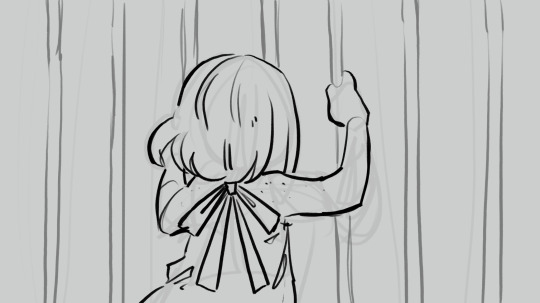
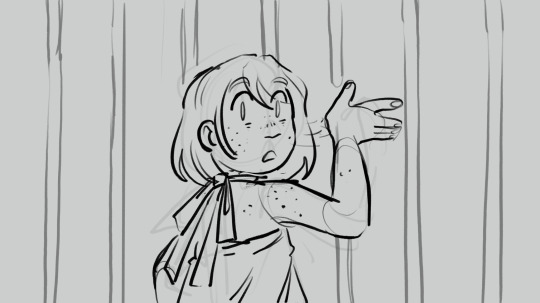
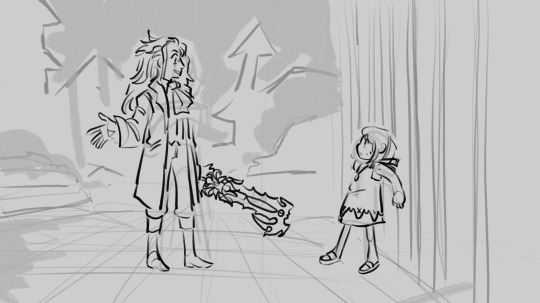
Cornered.
342 notes
·
View notes
Text
It truly is fitting that the Xehanort game was the one that explored this idea of like. Love and empathy having the potential to turn into corrupting forces. People hurting each other and themselves due to the despair and insecurity born from intense love. Things that ought to be associated with light and goodness (and that usually are in the main games) instead leading to darkness and suffering.
Eraqus with his bright and well-meaning comments to Baldr that are nonetheless ignorant and hurtful (Scala's teachings in general). Vidar's feelings of love and mercy compelling him to destroy darkness and save Baldr for his friends' sake, a normally heroic and selfless desire that would be awarded in any other KH game as others before me have noted, but because this quest is misguided, Vidar's methods too extreme, it turns into a fruitless, failure of an endeavor that ends up causing more death rather than preventing it. Baldr's adoration of his sister, his love for her, twists into an obsessive, self-esteem destroying dependency that leaves a gaping hole in his heart the perfect size for darkness to call home.
Over and over again, examples of the "false light" that the Master of Masters described to Xehanort.
Like yeah no wonder Xehanort turned out like that. He was trapped in a story where—what were ostensibly—acts of goodness and light were either utterly ineffective at preventing tragedy or were easily corrupted under the right conditions. The form of "light" wielded by his instructors and peers, the people who were supposed to protect and guide the world, let him down on such a profound level that his perception of its efficacy and righteousness suffered as a result; he completely lost faith in whatever was masquerading as "true light" in this world...or, you know, that's probably how he viewed it, anyway.
In his eyes, better to turn to darkness for his goals because at least it's good at getting shit done and not pretending to be something it isn't, assuming you're strong enough to bring it to heel and not let it corrupt you. And Sora wasn't around yet to prove him wrong, to prove that true light and goodness still exist in the world and you don't have to throw everything away and start over...
So yeah out of all the potential KH games that could've introduced (debatable)/explored this topic I'm glad it was the Xehanort one because it just makes so much sense for his character and where the series is at now, especially with the Lost Masters arc on the horizon featuring: the Master of Masters, a villain (question mark) seemingly motivated by light and light alone.
#khdr#the real reason why i love khdr with my whole heart#was that it actually explored WHY Xehanort and Eraqus was a match made in hell#because they're friends... and sometimes that isn't enough#sometimes love can be used for evil... and xehanort learns that for better or for worse
100 notes
·
View notes
Text
I wouldn’t blame Xehanort for not learning to distrust suspicious individuals in black coats or understanding stranger danger, given his upbringing.
Xehanort was taken from his mother when he was an infant and raised by the blue-cloaked figure until his death. Xehanort would have remained on Destiny Islands if not for his heartless.
While some might argue he could have learned this at Scala ad Caelum, it seems unlikely.
Those questioning Young Xehanort’s naivety in listening to the Master of Masters forget that the Master manipulated his students. He likely raised them when they’re young, making what he did to them more twisted to purposely sow mistrust among them, making them easy targets for the seven ancient darknesses to possess each of them, resulting in the start of the first Keyblade War. The Master of Masters is directly responsible for Xehanort’s path of darkness, as explained in Remind and KHDR.
The Master of Masters manipulated his own students, doing to them what he later did to Xehanort.
Manipulating a child who knows no better is an easy feat for the Master of Masters.
21 notes
·
View notes
Text
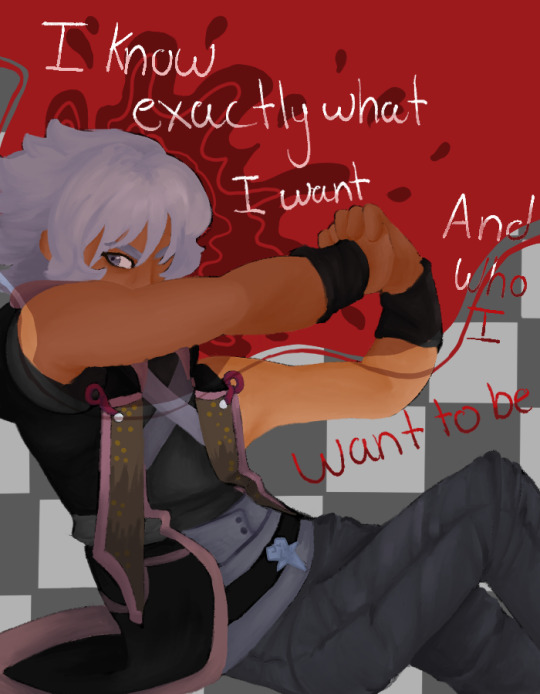
"I'm now becoming my own Self-Fulfilled Prophecy"
474 notes
·
View notes
Text
Thinking about the Xigbar scene in Olympus again. Makes me absolutely feral.
“I don't admire one guy leaping into danger if it means someone else might have to jump in to save him. You're all just lining up to lose out. Dooming others to take the fall with you. Oh, and you can spare me the usual party line. Yes, hearts are powerful when they're connected, but if you put too much of that power in one place, some of those hearts might end up breaking.”
In Olympus.
It’s about his friends in Dark Road it’s about his friends in Dark Road it’s about his friends in Dark Road it’s about his friends in Dark Road it’s about his friends in Dark Road it’s about his friends in Dark Road it’s about his friends in Dark Road
240 notes
·
View notes
Text
it’s interesting to me that khux and dark road have incredibly different and often directly opposed themes, but the themes from khux still carry an enormous amount of thematic resonance forward into dark road and make the story that much more tragic. for so much of khux to be about fate being inescapable, and the future being pre written no matter what you do, to lead into the ways in which dark road is a tragedy in a very literal sense of that word, in the way of classic tragedies, with all the springs winding up and how many places you can see they could have gotten out if things were different, if someone had made a different choice - but you can’t! not only because that’s how tragedy functions but because we know there’s no changing things because of khux. they’re different and they feed into each other. the book of prophecies is only mentioned a few times in dark road but you can feel it, can’t you?
60 notes
·
View notes

